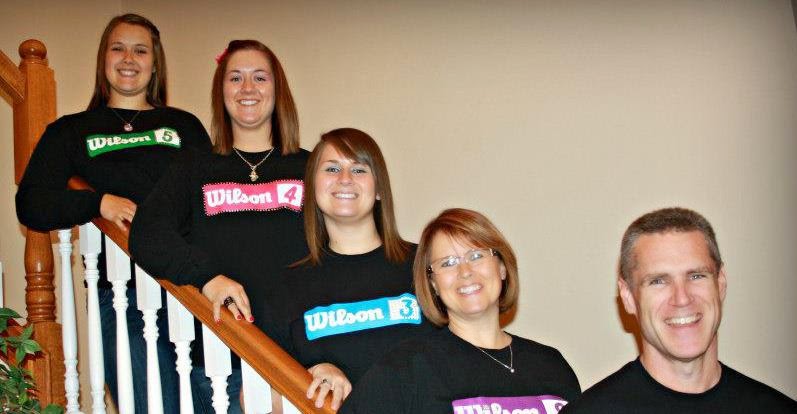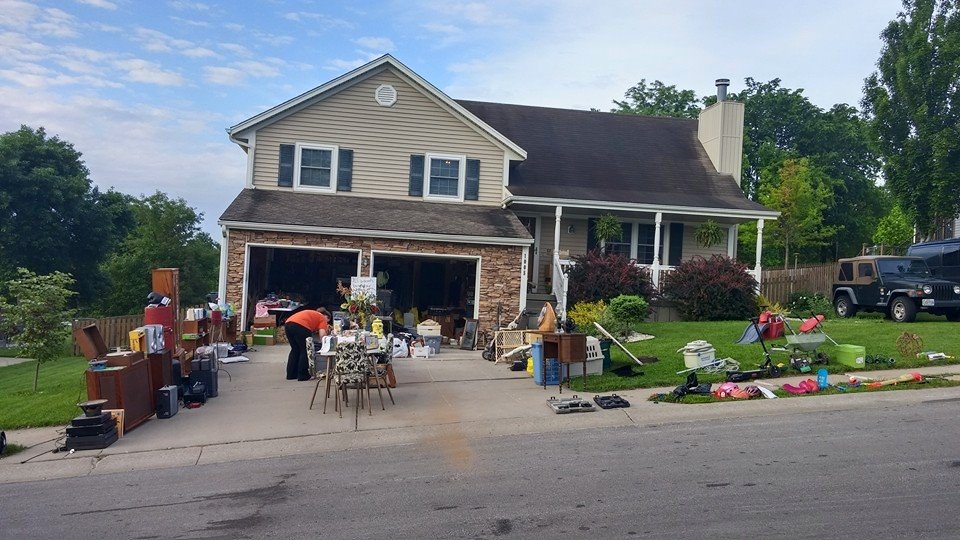Ultra
Junior Member
Saw this news today:
'They don't deserve this kind of life:' Meet China's abandoned children
By , CNN
Updated 0350 GMT (1050 HKT) August 12, 2015
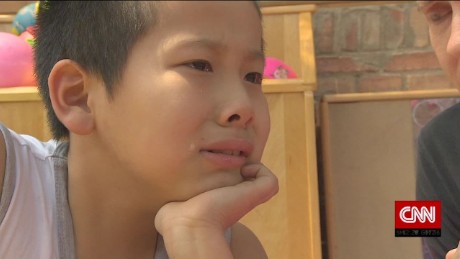
Beijing (CNN)
The first thing that strikes me about JiaJia is how he almost looks like Superman.
Arms and legs outstretched in flying position, lying stomach down on something resembling a modified skateboard, the 9-year-old uses his impressive upper body strength to gain speed, zooming back and forth across the floor. He's even wearing a T-shirt with the iconic logo of the American superhero.
"Superman," he says with a smile. "He's so cool."
You almost don't notice JiaJia's legs dragging limply behind until he pulls himself up onto the table and sits down for lunch.
JiaJia's parents abandoned him outside a Chinese fertility clinic when he was just three months old. Botched surgery for spina bifida left him paralyzed from the waist down. The procedure hit his spinal cord nerves, leaving him with no lower body function.
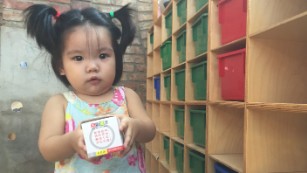
8 photos: China's abandoned children
Still, he's learned to swim, attends school when he can, and dutifully changes his own diapers. JiaJia (pronounced "Jah Jah") dreams of someday becoming a police officer.
"He just wants to be the same as other children his age," says Melody Zhang, Associate Director of Children's Hope International in Beijing.
'If I have parents, I can have a life'
The adoption agency has been trying to place JiaJia with a family for most of his life. He has touched the hearts of many staff and volunteers at , a medical foster home in the Chinese capital that currently cares for 23 Chinese children with disabilities.
JiaJia is the oldest and longest-term child at the home. He serves as a de facto big brother to the other kids -- pretend boxing, playing with toy cars, and even singing with them.
A family once promised to adopt JiaJia, then backed out. He has watched many of his friends find homes and then move away.
"It was very, very hard to find a family for JiaJia. We waited for nine years," Zhang says. "He waited for nine years."
Earlier this year an American family filed paperwork to adopt JiaJia. They learned of him through fellow church members who adopted his best friend from the same foster home.
But the Wilson family, from the Kansas City area, has only raised a fraction of the estimated $36,000 in adoption costs. They have a and documenting the adoption process.
Even if all goes well, it still may be months before JiaJia joins his new family in Missouri. He has Skyped with his future parents, sisters, and grandparents, and he says he wants to be with them "right now."
Waiting even just a few more months feels like an eternity for him. He's been waiting his whole life for a family.
"He's a really strong, resilient child. He does not show his emotions normally. He tries to be a happy kid," Zhang says.
But the pain is evident in his voice as he explains why he wants a family.
"If I have parents," he says. "I can live. I can have a life."
Then the tears start streaming down his face. In seconds, I'm crying too. And so is every member of our crew. We sit together, crying in silence. For a brief moment, we understand JiaJia's pain.
Disabled orphans: Numbers on the rise
It's a pain shared by far too many children in modern China. The number of abandoned children has dropped steadily in the last decade, but the numbers remain disturbingly high. Today, almost all of China's unwanted children have disabilities. Dozens of new cases of abandoned children are reported each day.
Some are more tragic than others. Last week, a newborn girl was, where police found her wedged face-down in the toilet's pipe.
Neighbors saw a young woman walk out before hearing the child's cries. The newborn was treated at the hospital, and a police source not authorized to speak to the media told CNN the child was taken to a state orphanage.
In May, police rescued a baby boy with a cleft lip who had been in southern China's Guangxi province.
And in May 2013, a newborn baby boy was found alive inside a toilet pipe in Jinhua. He was released from a hospital and taken home by his maternal grandparents. His 22-year-old single mother told police it was an accident and charges were never filed.
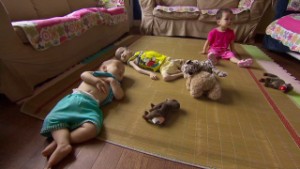
'Baby hatches' full of abandoned kids 03:26
The Chinese government has -- small, detached rooms on the side of orphanages equipped with cribs, incubators and air conditioning -- in the past five years in order to help parents safely give up their babies instead of abandoning them in the streets, or worse.
One baby hatch in eastern China's Shandong province reported last year that it had received -- all with disabilities or medical conditions -- in the first 11 days it was open.
"Children's welfare policies are not complete in China," says Wang Zhenyao, Dean of the China Philanthropy Research Institute. "Also, there are too many loopholes in our humanitarian policies."
The China Philanthropy Research Institute, which works with UNICEF to produce the annual China Child Welfare Policy Report, wrote in a 2014 newsletter that the number of disabled orphans has grown by 30,000 to 50,000 every year. The institute says there are 878 non-government-funded organizations taking care of orphans and abandoned babies.
The Chinese government has said there are roughly 600,000 orphans nationwide. Other groups put the nationwide number at closer to a million orphans.
Chinese orphanages and foster homes are no longer full of healthy girls, as they were at the height of the "one child" policy. Relaxed laws allow parents to pay fines for additional children and traditionally patriarchal societal views are slowly changing.
"Abandoned babies happened frequently before, and the situation was far more complicated several years ago [due to] the one-child-policy, the gender issue and poor living conditions in China," Wang says. "Today, serious health problems would be the main reason children are being abandoned by parents."
Despite rapid economic growth, welfare experts say the world's second largest economy lacks an adequate social safety net -- resulting in hundreds of thousands of orphans who become "unadoptable" by law after age 14.
'They don't deserve this kind of life'
I'm touched by the overwhelming number of tragic stories we found inside just one of China's many foster homes.
Perhaps the most tragic story was a girl I'll never have a chance to meet. Yuanyu was a beautiful 18-month-old with a sweet smile and severe cerebral palsy. She never weighed more than 10 pounds. Yuanyu died two weeks ago.
"Now we know that she's in a better place," says 17-year-old Christina Weaver, a Canadian missionary who volunteers at Alenah's Home.
Yuanyu's picture will be added to a wall near the back of the foster home that features portraits of children who've died over the years. Looking at the photos, you can hear the other children playing. I wonder if they'll find families to love them before it's too late.
"They all need love. They all deserve love," Weaver says. "They don't deserve this kind of life."
It breaks my heart to see kids abandoned like that, and worse of all, to endure that loneliness.
What is even more surprising is that it seem majority of the adoptions comes from America, even though there is a sizable pool of affluent middle and upperclass in China now (more than a few millions people with networth of more than $1 million USD), adopting a kid (especially one with disabilities) seems to carry with it a very large stigma in China.
What is even more ironic is the fact that majority of the adoption comes from religious conservative states which are often the most xenophobic (and anti-China). And most of them seems to be just average middle-class american families who just want to adopt (not because they can't have kids).
'They don't deserve this kind of life:' Meet China's abandoned children
By , CNN
Updated 0350 GMT (1050 HKT) August 12, 2015

Beijing (CNN)
The first thing that strikes me about JiaJia is how he almost looks like Superman.
Arms and legs outstretched in flying position, lying stomach down on something resembling a modified skateboard, the 9-year-old uses his impressive upper body strength to gain speed, zooming back and forth across the floor. He's even wearing a T-shirt with the iconic logo of the American superhero.
"Superman," he says with a smile. "He's so cool."
You almost don't notice JiaJia's legs dragging limply behind until he pulls himself up onto the table and sits down for lunch.
JiaJia's parents abandoned him outside a Chinese fertility clinic when he was just three months old. Botched surgery for spina bifida left him paralyzed from the waist down. The procedure hit his spinal cord nerves, leaving him with no lower body function.

8 photos: China's abandoned children
Still, he's learned to swim, attends school when he can, and dutifully changes his own diapers. JiaJia (pronounced "Jah Jah") dreams of someday becoming a police officer.
"He just wants to be the same as other children his age," says Melody Zhang, Associate Director of Children's Hope International in Beijing.
'If I have parents, I can have a life'
The adoption agency has been trying to place JiaJia with a family for most of his life. He has touched the hearts of many staff and volunteers at , a medical foster home in the Chinese capital that currently cares for 23 Chinese children with disabilities.
JiaJia is the oldest and longest-term child at the home. He serves as a de facto big brother to the other kids -- pretend boxing, playing with toy cars, and even singing with them.
A family once promised to adopt JiaJia, then backed out. He has watched many of his friends find homes and then move away.
"It was very, very hard to find a family for JiaJia. We waited for nine years," Zhang says. "He waited for nine years."
Earlier this year an American family filed paperwork to adopt JiaJia. They learned of him through fellow church members who adopted his best friend from the same foster home.
But the Wilson family, from the Kansas City area, has only raised a fraction of the estimated $36,000 in adoption costs. They have a and documenting the adoption process.
Even if all goes well, it still may be months before JiaJia joins his new family in Missouri. He has Skyped with his future parents, sisters, and grandparents, and he says he wants to be with them "right now."
Waiting even just a few more months feels like an eternity for him. He's been waiting his whole life for a family.
"He's a really strong, resilient child. He does not show his emotions normally. He tries to be a happy kid," Zhang says.
But the pain is evident in his voice as he explains why he wants a family.
"If I have parents," he says. "I can live. I can have a life."
Then the tears start streaming down his face. In seconds, I'm crying too. And so is every member of our crew. We sit together, crying in silence. For a brief moment, we understand JiaJia's pain.
Disabled orphans: Numbers on the rise
It's a pain shared by far too many children in modern China. The number of abandoned children has dropped steadily in the last decade, but the numbers remain disturbingly high. Today, almost all of China's unwanted children have disabilities. Dozens of new cases of abandoned children are reported each day.
Some are more tragic than others. Last week, a newborn girl was, where police found her wedged face-down in the toilet's pipe.
Neighbors saw a young woman walk out before hearing the child's cries. The newborn was treated at the hospital, and a police source not authorized to speak to the media told CNN the child was taken to a state orphanage.
In May, police rescued a baby boy with a cleft lip who had been in southern China's Guangxi province.
And in May 2013, a newborn baby boy was found alive inside a toilet pipe in Jinhua. He was released from a hospital and taken home by his maternal grandparents. His 22-year-old single mother told police it was an accident and charges were never filed.

'Baby hatches' full of abandoned kids 03:26
The Chinese government has -- small, detached rooms on the side of orphanages equipped with cribs, incubators and air conditioning -- in the past five years in order to help parents safely give up their babies instead of abandoning them in the streets, or worse.
One baby hatch in eastern China's Shandong province reported last year that it had received -- all with disabilities or medical conditions -- in the first 11 days it was open.
"Children's welfare policies are not complete in China," says Wang Zhenyao, Dean of the China Philanthropy Research Institute. "Also, there are too many loopholes in our humanitarian policies."
The China Philanthropy Research Institute, which works with UNICEF to produce the annual China Child Welfare Policy Report, wrote in a 2014 newsletter that the number of disabled orphans has grown by 30,000 to 50,000 every year. The institute says there are 878 non-government-funded organizations taking care of orphans and abandoned babies.
The Chinese government has said there are roughly 600,000 orphans nationwide. Other groups put the nationwide number at closer to a million orphans.
Chinese orphanages and foster homes are no longer full of healthy girls, as they were at the height of the "one child" policy. Relaxed laws allow parents to pay fines for additional children and traditionally patriarchal societal views are slowly changing.
"Abandoned babies happened frequently before, and the situation was far more complicated several years ago [due to] the one-child-policy, the gender issue and poor living conditions in China," Wang says. "Today, serious health problems would be the main reason children are being abandoned by parents."
Despite rapid economic growth, welfare experts say the world's second largest economy lacks an adequate social safety net -- resulting in hundreds of thousands of orphans who become "unadoptable" by law after age 14.
'They don't deserve this kind of life'
I'm touched by the overwhelming number of tragic stories we found inside just one of China's many foster homes.
Perhaps the most tragic story was a girl I'll never have a chance to meet. Yuanyu was a beautiful 18-month-old with a sweet smile and severe cerebral palsy. She never weighed more than 10 pounds. Yuanyu died two weeks ago.
"Now we know that she's in a better place," says 17-year-old Christina Weaver, a Canadian missionary who volunteers at Alenah's Home.
Yuanyu's picture will be added to a wall near the back of the foster home that features portraits of children who've died over the years. Looking at the photos, you can hear the other children playing. I wonder if they'll find families to love them before it's too late.
"They all need love. They all deserve love," Weaver says. "They don't deserve this kind of life."
It breaks my heart to see kids abandoned like that, and worse of all, to endure that loneliness.
What is even more surprising is that it seem majority of the adoptions comes from America, even though there is a sizable pool of affluent middle and upperclass in China now (more than a few millions people with networth of more than $1 million USD), adopting a kid (especially one with disabilities) seems to carry with it a very large stigma in China.
What is even more ironic is the fact that majority of the adoption comes from religious conservative states which are often the most xenophobic (and anti-China). And most of them seems to be just average middle-class american families who just want to adopt (not because they can't have kids).
Last edited:

